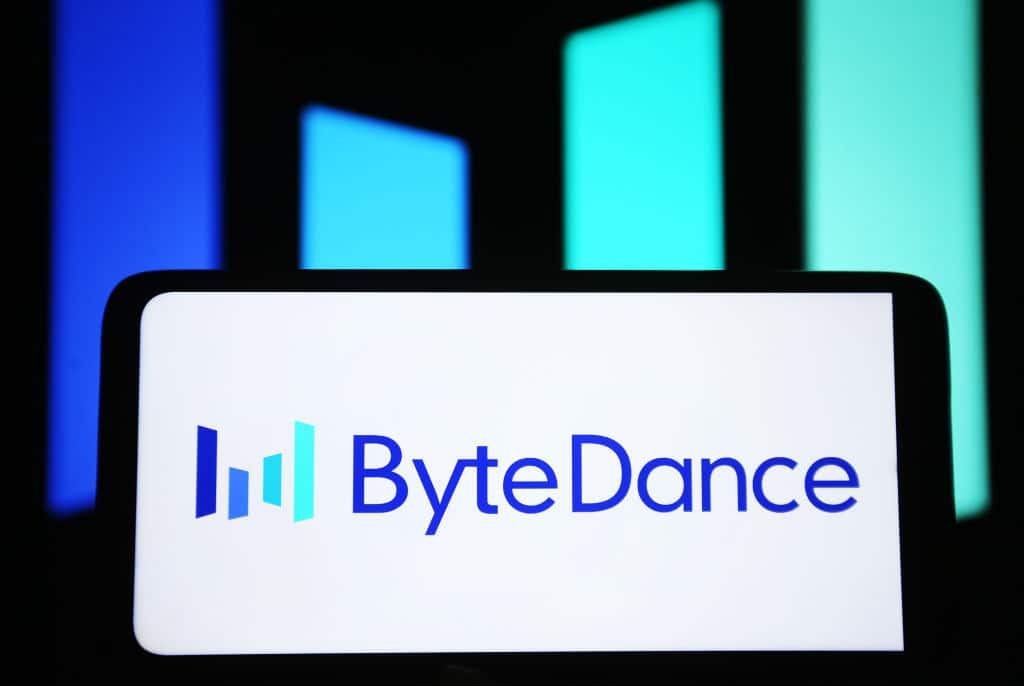The world’s most valuable startup does more than any other investment to put VCs on the Forbes Midas List, including its No. 1. But tens of billions in paper profits remain blocked by regulatory standoff without resolution in sight.
It’s the biggest venture capital profit haul that no one wants to talk about.
ByteDance – the Chinese parent company of social media app TikTok – is the world’s most valuable startup. Even at a valuation of $220 billion, down from a peak of $500 billion in the secondary market in 2021, it’s not even close. (SpaceX, Elon Musk’s rocket company, slots in second at $140 billion.)
For its investors, some of whom backed the company when it was still valued in the millions, an eventual ByteDance public offering would mean billions, and even tens of billions of dollars, in profits, instantly vaulting their investments into the ranks of the top VC bets of all time. The company already does more to put investors on the Midas List of top venture capitalists than any other, even though the list prioritizes exits over unrealized returns in the rankings.
And in a rarity for venture capital, ByteDance’s investors are currently keeping very, very quiet with such a historic outcome still glimmering just out of reach. Forbes reached out to every 2023 Midas List member invested in ByteDance, including new list No. 1 Neil Shen of Sequoia China, a ByteDance board director, and No. 71 Anton Levy of General Atlantic, whose firm also holds a board seat. None agreed to speak on the record about the investment or the company’s prospects.

The reason, Forbes heard in several conversations with investors who asked to remain anonymous, as well as secondary market experts and analysts, is simple: TikTok. The social media app is hugely popular in the U.S., with 150 million users, including five million businesses, but outsized in controversy, too. In March, Forbes reported that the FBI and Department of Justice were investigating ByteDance’s use of the TikTok app to surveil American journalists, including Forbes reporters. Other features, from a “heating” button that can make posts go viral, a library of “sensitive words” ByteDance tracks on its apps, to user data still accessible in China years after its deletion, have helped make TikTok a political hot potato.
Several years after federal courts blocked the Trump administration from banning TikTok, some lawmakers and the Biden White House have resumed that call, with the government indicating that if ByteDance does not sell TikTok, the app will be banned. That uncertainty – and the looming role of the Chinese government, which has indicated that a sale is a non-starter – means that for TikTok’s venture capital investors, it’s best not to poke the bear. While some investors have unloaded smaller stakes and may continue to do so, Forbes has learned, Midas-making, billion-dollar-plus positions remain idling on the runway. And the secondary market – where ByteDance’s reduced $220 billion price tag has largely held up in recent weeks even as TikTok CEO Shou Zi Chew took a beating in a heated Congressional hearing – has ground mostly to a halt.
Board seat holders Sequoia and General Atlantic declined to comment. ByteDance did not immediately respond to a request for comment.
“With rising China-U.S. tensions, do ByteDance shares become an issue?” mused one ByteDance investor who asked not to be named. “That’s what we’re trying to figure out.”
Several years after federal courts blocked the Trump administration from banning TikTok, some lawmakers and the Biden White House have resumed that call, with the government indicating that if ByteDance does not sell TikTok, the app will be banned. That uncertainty – and the looming role of the Chinese government, which has indicated that a sale is a non-starter – means that for TikTok’s venture capital investors, it’s best not to poke the bear. While some investors have unloaded smaller stakes and may continue to do so, Forbes has learned, Midas-making, billion-dollar-plus positions remain idling on the runway. And the secondary market – where ByteDance’s reduced $220 billion price tag has largely held up in recent weeks even as TikTok CEO Shou Zi Chew took a beating in a heated Congressional hearing – has ground mostly to a halt.
Board seat holders Sequoia and General Atlantic declined to comment. ByteDance did not immediately respond to a request for comment.
“With rising China-U.S. tensions, do ByteDance shares become an issue?” mused one ByteDance investor who asked not to be named. “That’s what we’re trying to figure out.”
From early bets to billions
If it weren’t for the politics, another ByteDance investor recently told Forbes, investors would be happy to talk about a “monster” business primed for the public markets. The company took in about $80 billion in revenue and $25 billion in gross operating profit, numbers separately reported by The Information and The Economist in recent weeks and confirmed to Forbes by two sources. That would put it at roughly the same scale as Tencent, the public Chinese tech holding company that recently carried a market cap of about $470 billion. And it means that were ByteDance to go public, it would likely supplant Alibaba’s public offering, which raised $25 billion at a market cap of $231 billion in 2014, as the largest tech IPO ever.

When Shen first invested in ByteDance’s 2014 Series C funding round, his firm Sequoia China, the China-based fund manager for the global Sequoia brand, amassed a position of 10% of the company at a $465 million valuation. Shen could’ve gotten in for even cheaper a year before at a $60 million price tag, but balked. He’s since put more money into the company in most subsequent funding rounds, excluding one led by SoftBank in 2018.
Sequoia’s global growth funds also invested later into ByteDance; the firm purchased additional shares through secondary sales in 2020. Add it all up, and today Sequoia holds just over 10% of ByteDance still, per a source with knowledge – a position valued on paper at more than $22 billion. Shen and Sequoia declined to comment.
Another firm, Susquehanna International Group, reportedly holds an even bigger stake. SIG first backed ByteDance in 2012, and invested alongside Midas List No. 54 Yi Cao of Source Code Capital in two subsequent rounds before Shen. SIG holds about 15% of ByteDance, per the report. SIG isn’t considered for the Midas List because it’s not strictly a venture firm. It didn’t respond to a request for comment.
Among VCs, other Midas List investors with ByteDance stakes include No. 10 Hans Tung of GGV Capital, No. 20 Scott Shleifer of Tiger Global, No. 37 Marc Stad of Dragoneer Investment Group and No. 71 Anton Levy of General Atlantic.
Several of those firms got into ByteDance indirectly through Musical.ly, a lip-syncing app acquired by ByteDance in 2017. Qiming Venture Partners, whose former partner JP Gan made the 2022 Midas List, sold its position in 2019 at a $95 billion valuation, according to data from startup tracker PitchBook, pocketing $113 million. GGV, another Musical.ly backer, sold much of its stake along the way, according to a source. Qiming and GGV didn’t respond to requests for comment. (The U.S. government began investigating the sale in 2019; in 2020, President Donald Trump declared the sale invalid by executive order, but the order was overturned in court.)
“People have sold quite a bit, and they’re debating selling more,” said one investor with knowledge of the thinking inside several ByteDance-holding firms. Firms with the largest stakes, or recent ones, including SIG, Sequoia, General Atlantic and Coatue, which invested in 2021, have mostly stood pat, according to three sources; Sequoia, in particular, hasn’t ever sold a single ByteDance share. “For the major shareholders, it would be hard for them to sell,” added one of the sources. All of the firms declined to comment.
ByteDance shares feel the chill
ByteDance shareholders who do look to sell face a secondary market also spooked by Washington’s saber-rattling. Some deals are happening – SIG and SoftBank reportedly sold a $100 million-plus block of shares in March, per PitchBook – but not at the billion-dollar scale that would move the needle for ByteDance’s larger shareholders.
One point of debate is ByteDance’s fair price. Mutual funds AIG, Fidelity, BlackRock and T. Rowe Price still mark the company at share prices that imply a valuation range of $260 billion to $320 billion. Notice, a data provider that tracks bids and offers for secondary shares, estimates a real-time price of about $180 billion, similar to ByteDance’s December 2020 funding round. Notice shows a number of open buy and sell orders for ByteDance, with an order book totaling more than $3 billion in potential trade interest. But Notice has no record of any of those bids leading to trades, unusual for a big company with such interest, said Chuck Taylor, a Notice senior vice president. “It’s safe to say that many of the older indications of interest are not active,” he added.
“Relative to other tech companies, it seems to be trading pretty cheaply, but there are these dark clouds.”
Glen Anderson, a broker-dealer of ByteDance shares at Rainmaker Securities, said that investors continue to express interest in ByteDance at a $220 billion to $225 billion market cap price range, while sellers express a willingness to unload at a $235 billion to $240 billion range. “Pretty much all” of those bids and offers are in the ballpark of $50 million to $100 million positions, Anderson said. But the sellers are typically bundling a bunch of smaller stakes together, he added, not offering shares from one shareholder on ByteDance’s cap table.
“We’ve been surprised that, with all the noise in Washington, that marketplace hasn’t moved much in price,” Anderson said. Still, he pointed out that these numbers are half the value of 2021 transactions that implied a $400 billion-plus market cap, with the drop already factoring in regulatory uncertainty of a potential TikTok ban. ByteDance holders would hope to avoid the fate of investors in Juul, Anderson noted, the e-cigarette company that was ultimately whacked by regulators and saw its valuation written down 98% by acquirer Altria.
“If there were no regulatory risks for ByteDance, you would see a rally,” Anderson added. “Relative to other tech companies, it seems to be trading pretty cheaply, but there are these dark clouds.”
For Midas ByteDance backers, a brisk secondary market wouldn’t do more than alleviate pressure from potential limited partners looking for the funds they backed to return some cash. The big outcome remains an IPO, with or without the sale of TikTok. One ByteDance investor argued the ideal outcome would be for U.S. politicians to, having made noise on the issue and earned talking points, quietly move on from a potential ban. Then, ByteDance could consider a dual listing in the U.S. and Hong Kong, for maximum shareholder profits.
Failing that, the next best option for investors would be a sale of TikTok’s global business, opening the way for them to hold stakes in ByteDance and TikTok as separate entities — which could mean separate domestic IPOs. “Quite a few elements” of Congress would be sympathetic to a divestiture if it was done in the right way to address various national security concerns, said Jacob Helberg, an investor author who was appointed the commissioner of the United States-China Economic and Security Review Commission by House Speaker Kevin McCarthy in 2022. (He added he’s skeptical of it doing so.)
Such a sale would have to clear China’s own laws around the export of technologies, Helberg said. One ByteDance investor agreed such a sale appeared unlikely at present for that reason. “I think it would be best for them to sell, but the Chinese government isn’t allowing them to do that,” the source said. “TikTok has access to models and algorithms they wouldn’t want shared.”
If no deal or truce can be brokered, investors would face a worse scenario: TikTok banned in the U.S. and other countries, and ByteDance’s business entrenched around China. Even then, regulatory clarity could set a path for a public offering in China, another path to an exit. “A ban would likely catalyze going public in Hong Kong in our opinion,” Wedbush analyst Dan Ives said in an email.
That speaks to the real worst outcome for investors: no outcome at all. So long as TikTok remains in regulatory limbo, so do the exit scenarios for VCs. Their paper billions are enough to help with Midas status. But they can’t be banked yet.
“The investors I know are more nervous not about whether their investments will be liquid, but whether they’ll be able to repatriate those funds back to the U.S.,” said Helberg. “In the event of a geopolitical standoff over Taiwan, for example, you’d have to be completely delusional to assume that you’re going to be able to repatriate large amounts of funds in either direction. Capital flows would lock down.”
That’s why, despite ByteDance’s already outsized role in their portfolios, one investor laughed when asked why their peers wouldn’t talk about their investment on record. “That would be a great way to raise your hand for attention from the Chinese government, or a random U.S. lawmaker,” they said. “If not for the politics, we’d be shouting this deal from the rooftops.”
By Alex Konrad, Forbes Staff
